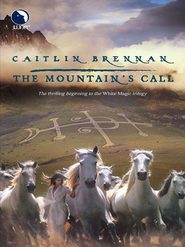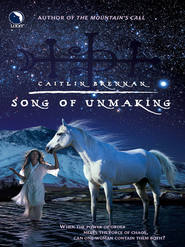По всем вопросам обращайтесь на: info@litportal.ru
(©) 2003-2024.
✖
Shattered Dance
Автор
Год написания книги
2019
Настройки чтения
Размер шрифта
Высота строк
Поля
Morag left the caravan in one of the wide stone courts of the citadel. “Be sure you take your medicine for three more days,” she warned the caravan master by way of farewell, “or the fever will be back, no better than before.”
“Yes, my lady,” the man said. “I won’t miss a dose, my lady.”
“See that you don’t,” she said. She considered reminding him that she was not a noblewoman and had no slightest desire to be one, but that battle was long lost. She fixed him with a last stern glare, at which he duly and properly flinched, then judged it best to let him be.
She found a groom to look after her mule and cart and paid him a silver penny to guard the belongings in the cart. Not that that was strictly necessary—there was a Word of guard and binding on them—but the boy had the lean and hungry look of a young thing growing too fast for himself.
He seemed glad enough to take the penny. He told her in careful detail where to find the one she was looking for, although he said, “You won’t get that far. They keep to themselves, that kind do.”
“I’m sure they do,” Morag said and thanked him. He seemed a little startled by that. Manners here on the Mountain were not what they might be.
Too many nobles, not enough common sense. She shook her head as she made her way through this unexpected place.
She had expected a castle with a village of farmers nearby to keep it fed. This had the fields and farms all around it, but it was much more than a fortress. It was a city of no mean size, built on the knees of the Mountain.
Ordinary people lived in it, servants and artisans and tradesmen. There were markets and shops, taverns and inns, and once she passed a theatre hung with banners proclaiming some grand entertainment direct from the empire’s capital.
The groom had warned her not to wander to the west side—that, he said, was the School of War. The greater school lay to the north and east, toward the towering, snow-crowned bulk of the Mountain. She could see it everywhere she walked, down alleys and over the roofs of houses.
The power of its presence made her head ache. It must be sending out the Call. She was not meant to hear it, but her magic was strong. She could feel it thrumming in her bones.
She refused to let it cow her. Magic was magic, whatever form it took. She advanced with a firm stride toward the gate with its carven arch.
There were no guards standing there. She had seen riders walking in the city, men and boys—never women or girls—dressed like servants in brown or grey. But no servant ever walked as they walked, with a casual arrogance that put princes to shame.
None of them guarded the gate to their school. There was no magic, either, no wards as Morag would have known them. And yet she paused.
The carving of the arch was worn with age and almost indistinguishable, but she could make out the shapes of men on horseback. The men rode light and erect. The horses were blocky, cobby things, thickset and sturdy—there was nothing delicate or ethereal about them. They were born of earth and stone, though their hearts might be celestial fire.
Morag shook her head to clear it. The gate blurred in front of her. It was trying to disappear.
“Clever,” she said. It was a subtle spell, masterfully cast. She might not have detected it at all if she had not been looking for it.
Once she recognized it, she saw the way through it. She only had to walk straight under the arch and refuse to see any illusion that the gate might weave for her.
It did its best. The wall was thick, but it tried to convince her that the passage through the gate was a furlong and more. Then it tried to twist and fling visions at her, armed guards and galloping horsemen.
The visions melted as she walked into them. The turns grew suddenly straight. She stood in the sunlight of a sandy courtyard surrounded by tall grey walls.
Windows were open above, catching the warmth of the day. She heard voices reciting and a lone sweet tenor singing, and at greater distance, the high fierce call of a stallion.
Beneath it all ran a steady pulse. It had the rhythm of a slow heartbeat, but there was a ringing depth to it that marked it as something else.
Hoofbeats. The gods were dancing in their courts and halls.
She followed the beats that seemed most in tune with her own heart. They led her down passages and along the edges of courtyards. Some had riders in them, mounted on white stallions, or men on foot plying long lines while the stallions danced in circles or twining patterns around and across the sandy spaces.
None of the riders took any notice of her. They were in a trance of sorts, intensely focused on their work. The horses flicked an ear now and then, and once or twice a big dark eye rolled in her direction, but they made no move to stop her.
They knew her. She could not say they offered her welcome, but the air seemed a little less thin and the place a little less strange.
She granted them a flicker of respect. Their awareness guided her to the northern wall of the citadel, a long expanse of grassy paddocks in clear view of the Mountain. Blocky white shapes grazed and gamboled there, and at the western end was another court where yet more riders danced.
She turned away from the court toward the colonnade that ran along its edge, ascending a stone stair into a tower that, as she went up, overlooked the citadel and the fields and forest that surrounded it and the Mountain that reared above them all.
Just short of the top was a room surrounded by windows, a place of light. It was empty but for a man who sat on one of the window ledges. He was an old man, his faced lined and his hair gone grey, but he was still supple enough to fold himself into the embrasure with a book on his knees.
Morag waited for him to finish reading his page. She made no effort to intrude on his awareness, but he was a mage. He could sense the shift of patterns in the room. After a while the awareness grew strong enough that he looked up.
His expression was bland and his tone was mild, but annoyance was sharp beneath. “Madam. All the servants should know I’m not to be disturbed.”
Morag folded her arms and tilted her head. “That’s refreshing. Everyone else persists in taking me for a noblewoman.”
His brow arched. “Should I recognize you?”
“Not at all,” she said. “My daughter takes after her father’s side of the family. How is she? Still here, I hope. I’d be a bit put out if she turned out to be in Aurelia after all.”
He blinked, clearly considered several responses, then stopped as the patterns fell into place around her. It was fascinating to watch. Morag had a bit of that kind of magic—it was useful for a wisewoman to be able to see where everything fit together, the better to repair what was broken—but this was a master of the art. The Master, to be exact.
At length he said, “Ah. Madam. My apologies.” He unfolded himself from the window ledge and bowed with courtly grace. “Not a noblewoman, no, but a great lady. I see it’s no accident your daughter is what she is.”
Morag studied both the face he showed her and the one, much younger and brighter, that she could see behind it. “You respect her,” she said. “Good. Even after…?”
“The white gods and the Ladies have made it clear,” the Master of the riders said, “that she is their beloved. Whatever she does, whatever becomes of her, she has their blessing. Riders are stubborn and mired in tradition, but even we can learn to accept what we can’t change.”
“I’m not sure I believe you,” said Morag.
His smile was wry. “Do you know, she said the same. It’s no less true for that.”
“I hope so,” Morag said, “for your sake. So she’s well? Not locked in a dungeon?”
“Well, loved, pampered—the child when it comes will have a hundred uncles.”
Morag allowed herself to soften just a fraction. “Good, then. I’m spared the trouble of setting this place to rights. Now if you’ll excuse me, you have an hour left of your escape from duty and tedium, and I have a daughter to find.”
“She’s down below,” the Master said.
“I know,” said Morag, gently enough when all was considered. She nodded briskly. He nodded back with more than the hint of a bow.
Good man, she thought, and no more of a fool than any man was inclined to be. He had reassured her more than he knew. Her opinion of the riders and their school had risen somewhat, though she was still reserving judgment.
Chapter Four
“Straighten your shoulders,” Valeria said. “Good. Now lift him with your tailbone—yes, so.”
The stallion who circled Valeria sat for an instant, then floated from a cadenced trot into a slow and rhythmic canter. The young rider on his back flashed a grin before he remembered to be properly serious.
She bit her lip to keep from grinning back. She had to be proper, too, if she was going to pass muster to become a Fourth Rider. Riders might have changed enough to accept a woman among them, but they still had certain expectations as to manners and deportment.







